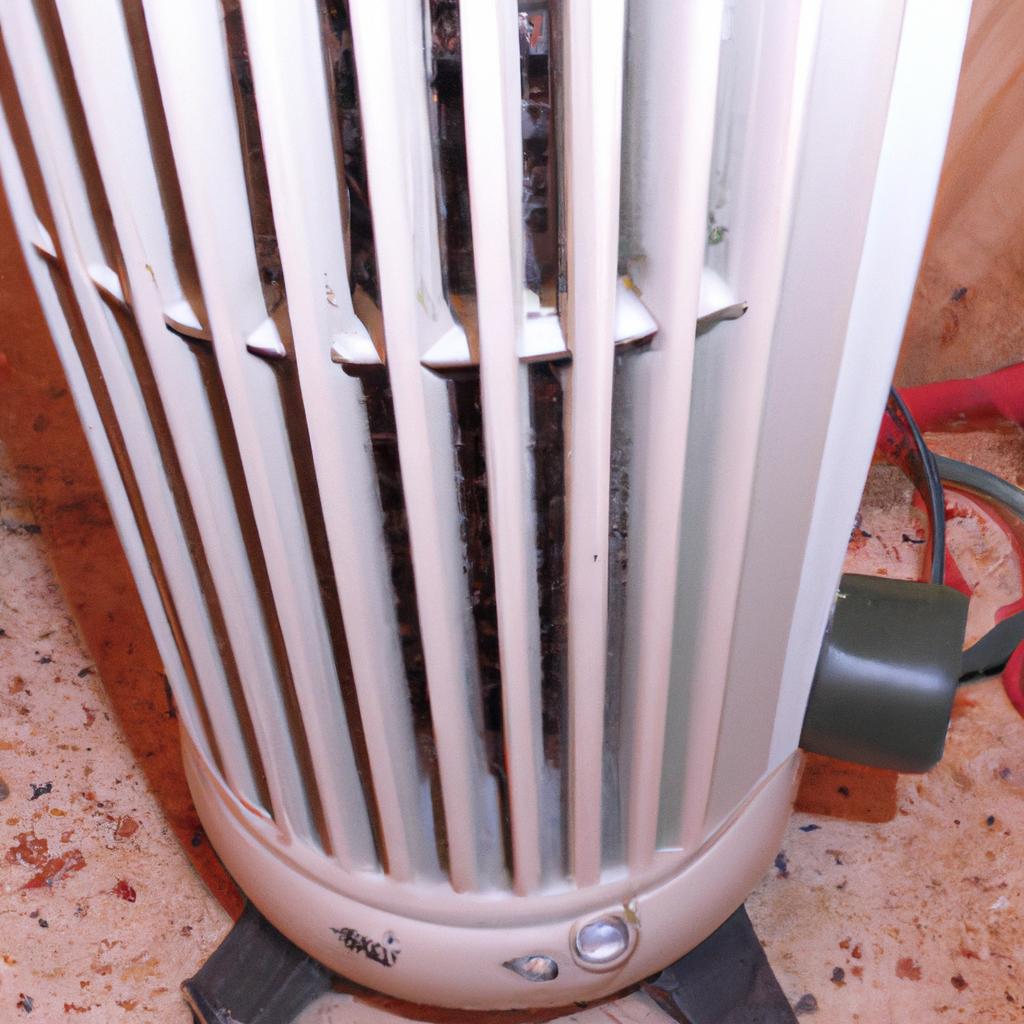Are you considering purchasing a ceramic heater to warm up your home during the cold winter months? You may be wondering whether this type of heater will dry out the air in your home, leading to uncomfortable conditions and potentially harmful health effects.
Ceramic heaters do not directly dry out the air, but they can contribute to a decrease in relative humidity in a room. This is because they heat the air, causing it to hold more moisture, which can lead to a perception of dryness. To maintain comfortable humidity levels, consider using a humidifier alongside the ceramic heater or ventilate the room periodically.
In this article, we will explore the question of whether ceramic heaters have a drying effect on indoor air. Ceramic heaters are a popular choice for many homeowners due to their energy efficiency and ability to quickly heat up small spaces.
However, some people worry that these heaters may have a negative impact on indoor air quality by reducing humidity levels.
By examining how ceramic heaters work and their impact on moisture in the air, we can determine whether they are likely to cause dryness and discomfort in your home.
Definition Of Ceramic Heaters
Ceramic heaters are a type of space heater that are becoming increasingly popular due to their energy efficiency and safety features.
They work by using ceramic plates to generate heat, which is then dispersed into the surrounding air.

These heaters come in a variety of shapes and sizes, from portable personal heaters to larger units designed for whole-room heating. One of the benefits of using a ceramic heater is that they are relatively quiet compared to other types of space heaters.
They also tend to be very efficient in terms of energy usage, which can save you money on your energy bills over time. However, like all heating devices, there are some potential downsides to consider before purchasing a ceramic heater.
When it comes to using any type of heater, it’s important to weigh the pros and cons before making a decision.
In the next section, we’ll explore some of the advantages and disadvantages associated with using ceramic heaters specifically.
Pros And Cons Of Using Heaters
You may think that using a heater is the best way to keep warm during cold weather, but there are pros and cons to consider.
On one hand, heaters provide instant warmth and can be more efficient than central heating. But on the other hand, they can also dry out the air in your home, leading to discomfort and potential health issues.
When the air in your home becomes too dry, it can cause irritation to your skin, eyes, nose, and throat.
This is especially true if you have allergies or respiratory issues.
Additionally, low humidity levels can damage wooden furniture and floors over time.
While heaters may seem like a quick fix for colder temperatures, it’s important to weigh their effects on overall indoor air quality.
Effects on humidity levels are another factor to consider when using heaters.
As mentioned before, dry air can cause discomfort and damage to your home’s interior.
However, some heaters come with built-in humidifiers or allow for additional humidification devices to be added on.
It’s essential to research which types of heaters are best suited for maintaining healthy humidity levels in your specific living space.
Effects On Humidity Levels
Ceramic heaters are known for their efficient heating performance, but one concern that people often have is whether they dry out the air. The answer is yes, ceramic heaters can reduce humidity levels in a room.
As the heater warms up the air, it also reduces its moisture content, leading to dryness.
Low humidity levels can cause discomfort and health problems such as dry skin, throat irritation, and respiratory issues. Therefore, if you plan to use a ceramic heater for an extended period or in a small room with poor ventilation, it’s essential to monitor the humidity levels using a hygrometer and take steps to increase moisture in the air.
You can do this by placing bowls of water around the room or using a humidifier.
Moving on to alternatives to heaters, there are many options available depending on your needs and preferences.
Some popular choices include electric blankets, heated floors, and heat pumps.
Electric blankets provide direct warmth while allowing you to control the temperature easily.
Heated floors offer radiant heat that can warm up an entire room gradually.
Heat pumps work by transferring heat from one location to another and come in both ductless and ducted models. Consider your budget, space availability, and heating requirements before choosing an alternative to ceramic heaters.
Alternatives To Heaters
As we have discussed, using ceramic heaters can have a significant impact on the humidity levels in a room.
However, there are alternatives to consider that will not dry out the air.
One option is to use a humidifier, which adds moisture to the air and can help alleviate dry skin and sinus issues.
Another alternative is to use an oil-filled radiator heater, which does not produce dry heat like ceramic heaters do.
Additionally, using a ceiling fan or portable fan can circulate warm air without reducing humidity levels.
Lastly, opening windows for a short period of time each day can bring in fresh air and prevent stagnation.
By considering these alternatives, you can still keep your space warm without sacrificing comfort or health.
It’s important to weigh the pros and cons of different heating methods and choose one that aligns with your personal preferences and needs.
Remember to monitor humidity levels and adjust accordingly for optimal indoor air quality.
Conclusion
Overall, ceramic heaters are a convenient and effective way to heat up a room. They have many advantages such as being energy efficient and portable.
However, they do have some downsides such as drying out the air in a room.
This can cause discomfort for people with respiratory problems or allergies.
If you are concerned about the effects of ceramic heaters on humidity levels, there are alternatives to consider.
One option is to use a humidifier in conjunction with your heater.
This will add moisture back into the air and help alleviate any dryness or discomfort.
Another alternative is to use natural heating methods such as sunlight or fireplaces.
While these may not be as convenient or consistent as a ceramic heater, they do not have the same drying effect on the air.
In conclusion, while ceramic heaters can be a great addition to your home during colder months, it’s important to consider their potential impact on humidity levels.
By using alternative heating methods or incorporating a humidifier into your routine, you can create a comfortable and healthy environment for you and your family.




